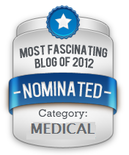Mistakes happen. What happens after a mistake can be as, or even more, important to a patient's ultimate outcome and satisfaction with care. This article discusses how to decide if an error has been made in your practice and how to offer an apology when one is warranted. It also recommends strategies to avoid future errors.
What is an error?
Not everyone defines error the same way. An often-cited 1999 Institute of Medicine (IOM) report defined error as a "failure of a planned action … or the use of a wrong plan." Some patients include rudeness or prolonged waiting time when describing medical error. With the literature offering at least 25 definitions of error, how do you decide whether an occurrence rises to the level of an error and whether it should be disclosed to the patient?
Whatever definition you use, it is clear that healthcare professionals have frequent opportunities to learn from, and answer for, their mistakes. The IOM report estimated that between 44,000 and 98,000 Americans die annually in hospitals because of errors. A review of 11 studies found between five and 80 errors per 100,000 primary care visits. Another study asked family physicians to identify errors in their practice; they disclosed errors in 24 percent of their office visits, with 24 percent of those errors causing (usually minor) harm.
From a systems perspective, every error - large or small - offers an opportunity for improvement and may be worth identifying, correcting and tracking. Yet, disclosing every error, no matter how trivial or benign, chips away at patient confidence, while failure to disclose erodes patient trust. From a patient perspective, there is a preference for full disclosure, although patients appear to agree with professionals when deciding if an error was committed - they tend to rely on whether professional standards were breached and whether harm occurred.
Even when the care is blameless, a caring professional will show empathy when a patient has an undesired or unanticipated result, or appears unhappy or offended. (Here are some examples: "I am sorry things turned out this way." "How are you holding up?" "This must be difficult for you." "Thank you for waiting.")
Empathy, however, is not an apology.
When to apologize
An apology acknowledges responsibility and reflects remorse. It should be offered when an error has occurred and harm or potential harm has resulted.
As with most judgment calls, determining whether the error's magnitude and harm, real or potential, merit an apology will depend on the circumstances. For example, a misspelled word in a progress note would not usually be cause for an apology. However, if the misspelling was a medication that was similar in name to another drug, and a subsequent prescriber refilled the misspelled medication, which in turn caused harm to the patient, then an apology would be in order.
When the outcome is unwanted or unexpected, people are unhappy, or errors are suspected, an apology should be considered. Before concluding that an apology is needed, it is first necessary to get the facts: What happened, exactly? What are the perspectives of the other members of the care team? What was the proper procedure for the condition in question, and was it followed? Was there an error? If the patient - or very often, a family member - demands an explanation or apology on the spot, before you have a sufficient understanding of what happened, it is appropriate to reply, "I don't know, but I will find out." When things go bad, clinicians may jump to premature conclusions about whether an error occurred, perhaps feeling a need to offer some explanation of what happened or to cope with their own emotions over a bad outcome.
Consider the example of an infant with cerebral palsy who had a worrisome electronic fetal monitor tracing before a difficult vaginal birth. The cord blood gas at delivery showed a pH of 7.34. Feelings of grief, guilt or empathy with the distraught parents may cause the clinician responsible for the delivery to attribute the cerebral palsy to brain damage due to perinatal asphyxia and to consider an apology for not delivering the infant sooner by cesarean section.
Before offering an apology, however, it is important to reflect on the facts of this case and on what is known about cerebral palsy. The infant's cord gas pH was not consistent with the acidemia expected in a newborn diagnosed with perinatal asphyxia. Moreover, electronic fetal monitor tracing has not been shown to improve or predict long-term birth outcomes. Fewer than 10 percent of children with cerebral palsy are thought to have developed the handicapping condition as the result of their birth process. While cerebral palsy may be related to prematurity or perinatal infection, in most cases no one knows why the cerebral palsy developed or whether it could have been prevented.
In the spirit of full disclosure, the clinician might refer back to the worrisome electronic fetal monitor tracing, acknowledge the potential for cerebral palsy to be caused by asphyxia in a small proportion of affected babies and explain that the cord gas results made asphyxia unlikely in this case. While it might not sound as professionally confident or be as satisfying for those desperate for the certainty of definitive answers, the correct explanation to the parents in this case is most likely, "I don't know why your baby has cerebral palsy, but we'll continue to work on trying to find out." At the same time, the clinician should offer more than just science. The emotional aspects of the diagnosis must also be addressed: "How are you coping? Having a child diagnosed with cerebral palsy can be overwhelming for families. I am sorry you and your family have to deal with this difficult time."
To be continued...

 RSS Feed
RSS Feed































